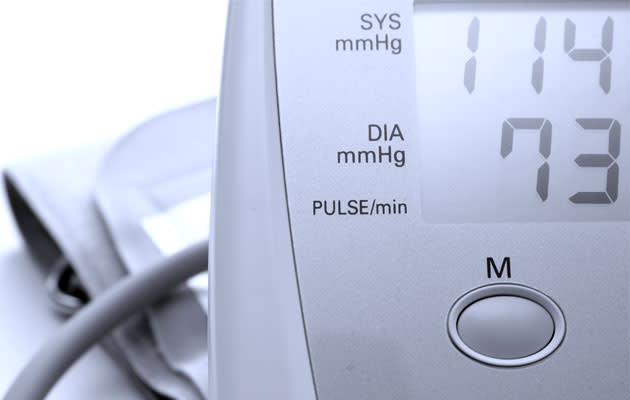 Fit to Post Health
Fit to Post HealthIs hypertension putting your eyes at risk?

High blood pressure or hypertension is a silent killer that increases your risk of stroke and heart disease and causes serious health complications if left unchecked.
Most people with high blood pressure feel normal (i.e. no headaches or tightness in the neck, etc.), even when their blood pressure is moderately high. Thus, many are not even aware that they have hypertension. This is why you should have your blood pressure checked at least once a year and more frequently if you are on medication.
Blood pressure measures how hard the heart has to work to pump blood through the arteries. According to the Health Promotion Board, high blood pressure affects more than half of Singaporeans aged 60 to 69 and one in five aged 18 to 69. You have hypertension if your blood pressure reading is 140/90 mmHg or higher in the clinic.
If you have a home blood pressure set, you should check your blood pressure regularly, and record it. Blood pressure varies throughout the day, and taking your pressure at different times will allow your doctor to see your average blood pressure. Show this record to your doctor at each visit.
Related article: Is it true that sea salt is healthier than table salt?
Complications arising from high blood pressure
Many people are aware that high blood pressure can cause heart disease. Dr Ian Phoon, a family physician from SingHealth Polyclinics, a member of the SingHealth group, shares five lesser-known reasons to keep your blood pressure under control.
1. High blood pressure can damage your brain cells
Blood clots may cut oxygen supply to the brain cells. This causes the brain cells to die and stroke or dementia to occur. The bursting of arteries in the brain may cause bleeding in the brain, resulting in a stroke.
2. High blood pressure can affect your eyesight
Uncontrolled high blood pressure causes the blood vessels in the eye to thicken and narrow, disrupting blood supply to the retina (the light-sensitive part of your eye – like a camera “film”). Blurred vision can result. The retinal veins may burst and cause bleeding in the eye. If blood pressure remains untreated, these conditions, known as hypertensive retinopathy, can lead to total vision loss.
Related article: How to survive a heart attack when you’re alone
3. High blood pressure can cause kidney failure
High blood pressure can damage the arteries leading to the kidneys and the blood vessels in the kidneys, thus affecting the kidneys’ ability to remove excess water and waste products from the blood. This may lead to kidney failure.
4. High blood pressure can cause bone loss
People with high blood pressure tend to excrete more calcium in the urine. Excessive calcium loss can lead to loss in bone density. The body needs calcium to maintain strong bones and teeth, and help blood vessels move blood throughout the body.
5. High blood pressure is associated with sleep problems
People who are overweight and tend to snore may have obstructive sleep apnoea (OSA). This is a condition in which one repeatedly stops breathing momentarily or has shallow breathing during sleep. Symptoms are daytime sleepiness despite adequate hours of sleep. People with OSA tend to have higher blood pressure.
Related article: Did you know high blood pressure can cause sexual dysfunction? Here are five more reasons to keep your hypertension in check
FREE Doctor Q&A: Cataract, glaucoma and diabetic retinopathy – all these come about with age. But what is worrying is that these eye conditions often do not display any symptom during early stages. Only through early detection and treatment will you be able to slow down or in some cases, even reverse their progression. This month, take this opportunity to send us any question you may have about age-related eye conditions. Ask our expert – it’s free!
Get more health tips at HealthXchange.com.sg and sign up for our FREE e-newsletter.
By Teresa Cheong for HealthXchange.com.sg.
Health Xchange's articles are meant for informational purposes only and cannot replace professional surgical, medical or health advice, examination, diagnosis, or treatment.


